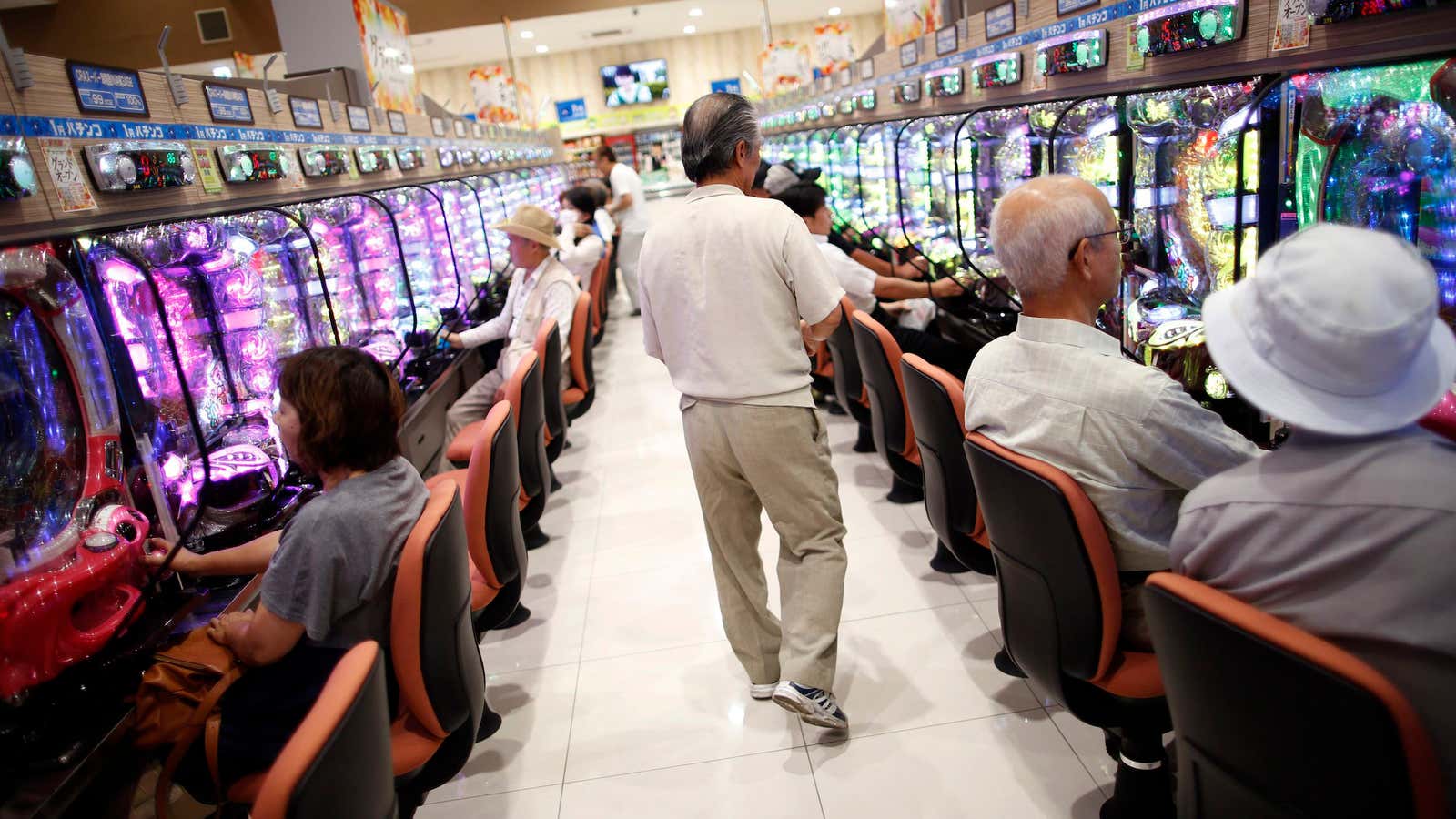Japan is reforming its gambling industry, with plans to introduce a new law this autumn that will legalize casinos as a way to boost economic growth and tourism before the 2020 Tokyo Olympics. One of the biggest potential beneficiaries? Pachinko, the pinball-slot machine hybrid played across the country.
One in seven Japanese adults play pachinko and its revenues last year were put at 19 trillion yen ($175 billion), according to The Economist. But pachinko players are mainly, as the magazine puts it, “chain-smoking geezers.” The number of regular players is falling and they are getting older. This is part of a broader trend; Japan has the world’s oldest population, with a quarter of its people over 65, which means that in order for the country’s economy to grow, it needs to find ways to get more from what it already has.
As pachinko was previously classified as a game, it hasn’t been taxed. Players win small metal balls, which can be exchanged for token prizes at the parlor—or cash at a separate location, a contrivance that led to pachinko being used for money-laundering by the yakuza. As casinos are legalized, pachinko is likely to come under similar rules, and may finally contribute to the public purse. Given the sums involved, it would mean billions of dollars worth of taxes for the government.
The biggest pachinko operator, Dynam, operates almost 400 parlors. The proceeds from a 2012 listing in Hong Kong is funding plans to open 1,000 more—these will be air-conditioned and smoke-free in a bid to attract younger customers. The company is also in talks to build a casino in Japan once the law passes.
Analysts told Reuters that Japan could become the third-biggest gambling market in the world, with annual revenues of more than $40 billion. And doesn’t even count the massive pachinko market.




